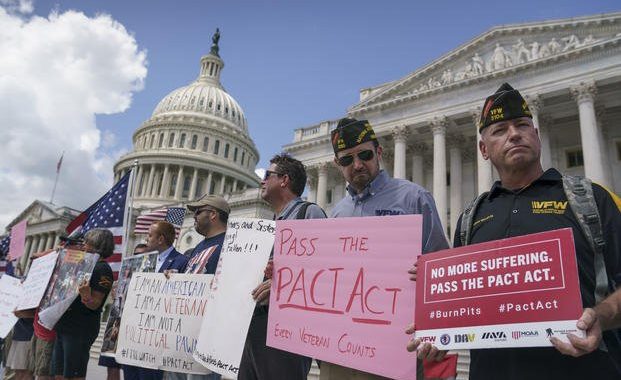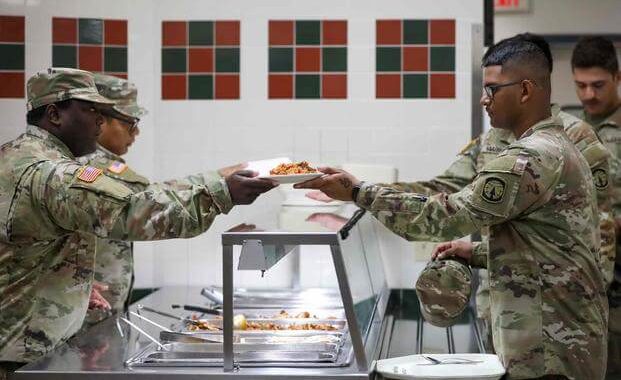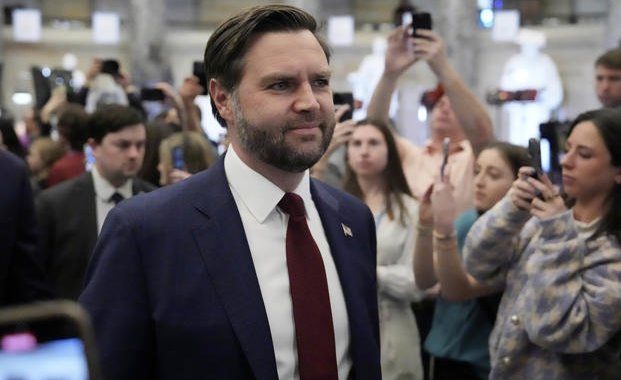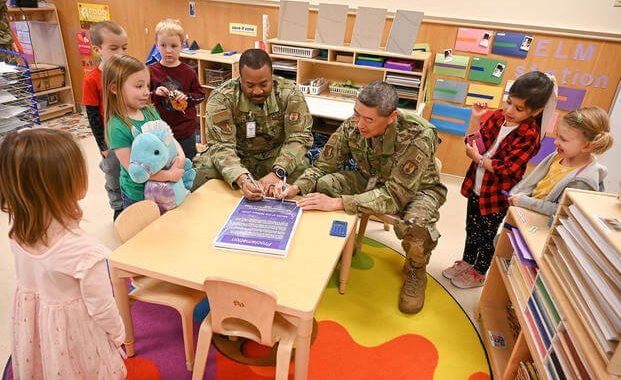Intelligence Officials Reportedly Struggle To Brief Trump Because He’s Like A Giant Toddler
4 min readDonald Trump has blamed his intelligence officials for failing to alert him to the gravity of the coronavirus threat, which he spent nearly two months ignoring and downplaying as it escalated. “They did NOT bring up the CoronaVirus subject matter until late into January, just prior to my banning China from the U.S.,” he tweeted this month, overstating the action he took in the early days of the crisis. “Also, they only spoke of the Virus in a very non-threatening, or matter of fact, manner.” But according to a New York Times report Thursday, it wasn’t so much that intelligence agencies didn’t warn him about the looming pandemic—it’s that Trump is, as he might put it, a “low IQ individual” who cannot understand or pay attention to his briefings.
Trump, current and former intelligence officials told the Times, has “a short attention span,” frequently “veers off on tangents,” and “rarely, if ever, reads intelligence reports.” He “rarely absorbs information that he disagrees with or that runs counter to his worldview,” the officials said. And, perhaps most critically, he is “particularly difficult to brief on critical national security matters”—like, for instance, a public health crisis of a scale not seen in a century. Trump allies like Richard Grenell, the acting director of national intelligence, have spun his unique approach to briefings as the work of a maverick “questioning the assumptions and using the opportunity to broaden the discussion to include real-world perspectives.” But the Times report, like others before it, paints a portrait of an easily-distracted president who is too lazy to do the basic work of his job and who relies instead on rumors and opinions offered in conservative media and from pals like retired golfer Gary Player.
Trump has been infamously resistant to briefings throughout his presidency; already distrustful of intelligence agencies, regarding them as part of the “deep state” that supposedly tried to prevent his presidency and has since worked to undermine it, he has also reportedly struggled to pay attention to briefings that don’t have his name strategically peppered throughout them. Such inattention and incompetence would be bad under any circumstance. But the pandemic, which has killed nearly 100,000 in the U.S. and more than 328,000 globally, has thrown into stark relief the danger of having a careless idiot blindfolded at the wheel.
The president was briefed more than a dozen times in January and February about the coronavirus threat, ignoring warnings about the crisis and minimizing its significance until it was too late—at which point he promptly began shifting the blame, politicizing the disaster, and now pressuring states to reopen their businesses whether or not they meet the safety benchmarks his own administration outlined. His delay in acting appears to have had devastating consequences; according to a new study out of Columbia University Wednesday, imposing social distancing restrictions even a week earlier could have saved at least 36,000 Americans’ lives.
Thanks to his blundering response to the crisis, Trump’s approval ratings have continued to drop; a Quinnipiac poll released Wednesday found the president trailing his rival, Joe Biden, by 11 points. That may signal that a growing number of Americans prefer a commander-in-chief who is guided by experts and intelligence officials rather than what, say, a retired professional golfer mentioned to him on the links recently. Indeed, the qualities some Trump voters excused or embraced in the past might finally be wearing on them amid the COVID crisis. Older Americans, a key contingent of the president’s base, seem increasingly uneasy with him as he casually forsakes their health for the stock market; his cruelty, no big deal to his supporters when it’s directed at immigrants or Muslims and other recurring Trump bogeymen, appears to be less appealing when it comes at their expense.
Approval of his overall handling of the crisis—as well as the economy, once his chief selling point—has also dropped; those who may have dismissed his obvious incompetence as occasional gaffes played up by the media may be finding it more challenging to do so as he proposes using disinfectant to treat COVID patients and offers unconvincing promises of a speedy economic recovery as the country bleeds jobs. This is not to minimize the size and zeal of his base of true believers, which has remained loyal for more than three disastrous years; they’ll stick with him, even if his refusal to simply take intelligence briefings seriously led to a worse outbreak in the U.S. But for the less-fervid parts of his base, the crisis is perhaps serving as a harsh dose of reality.





